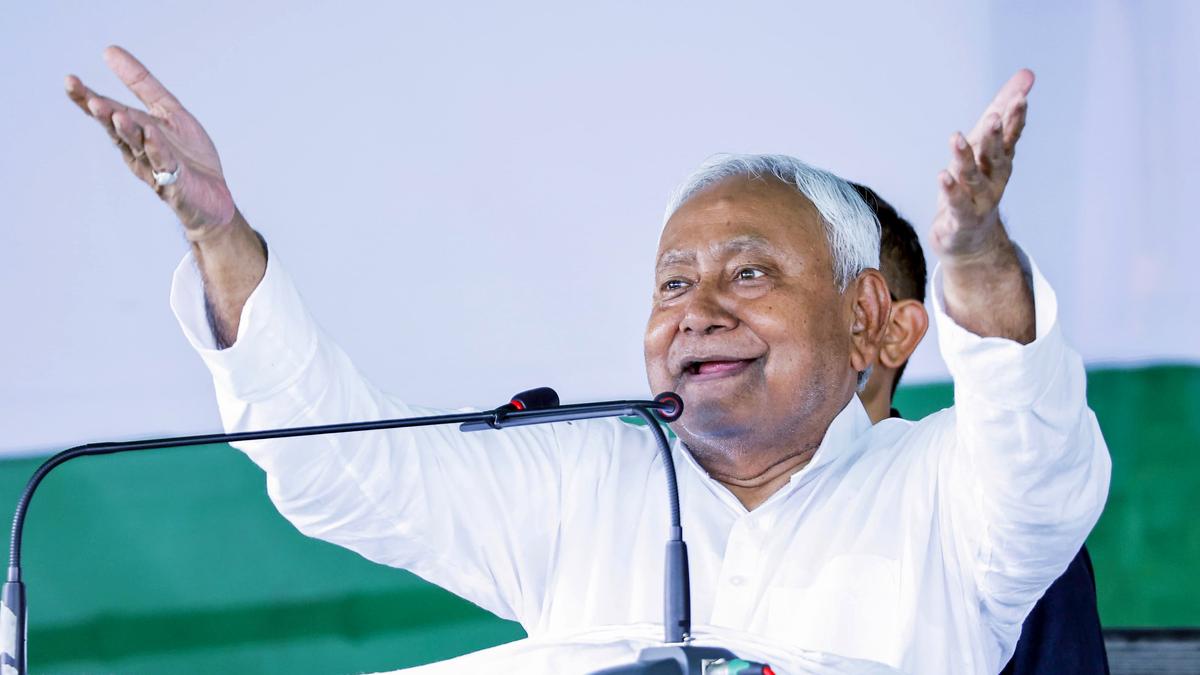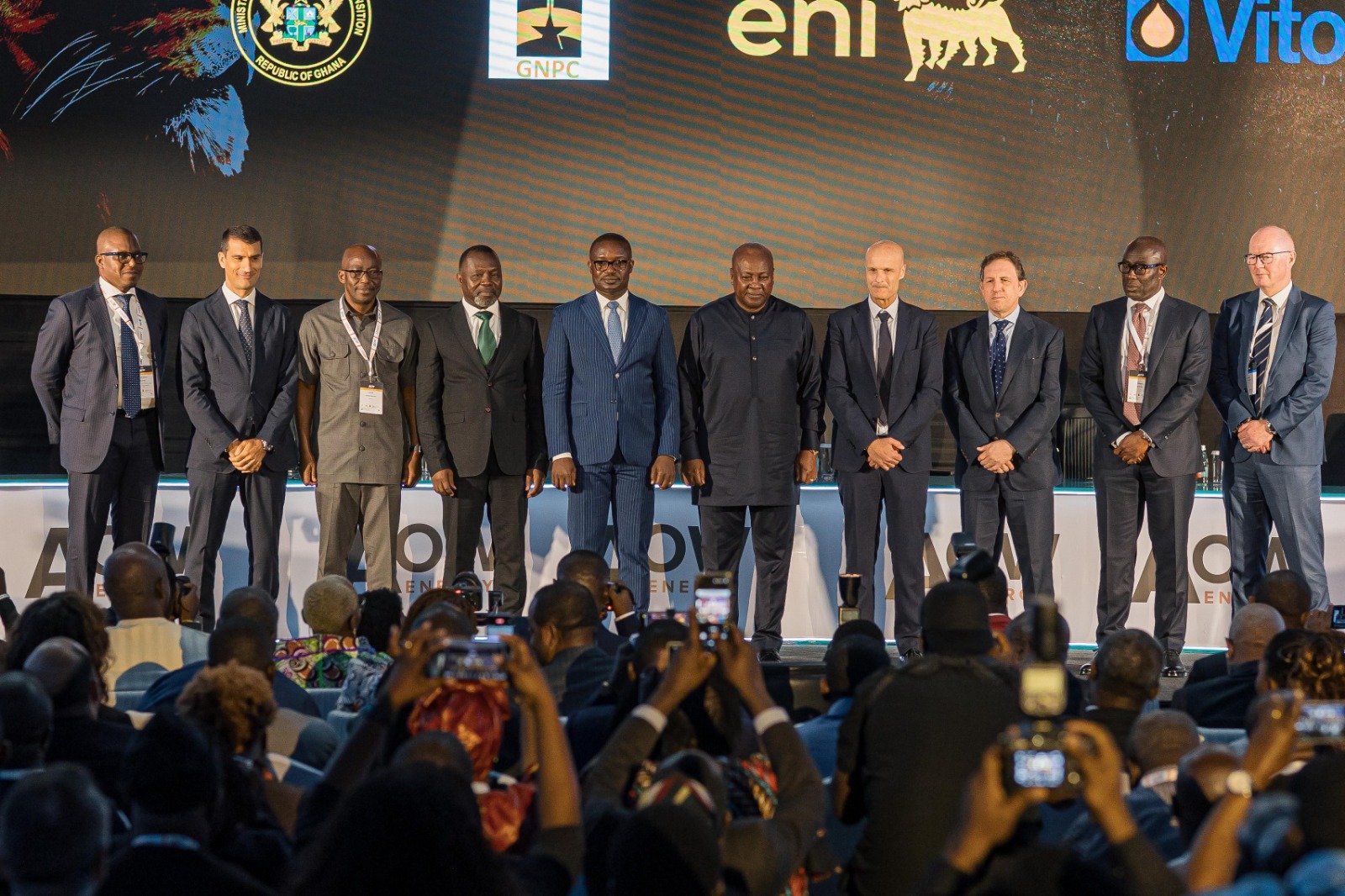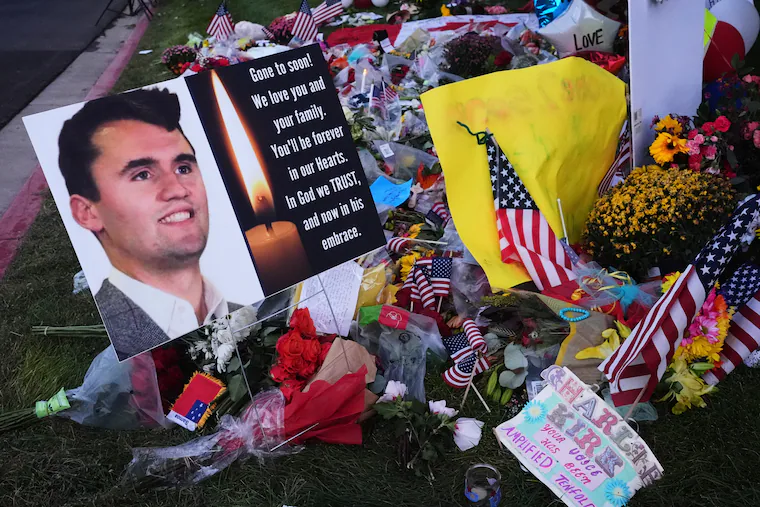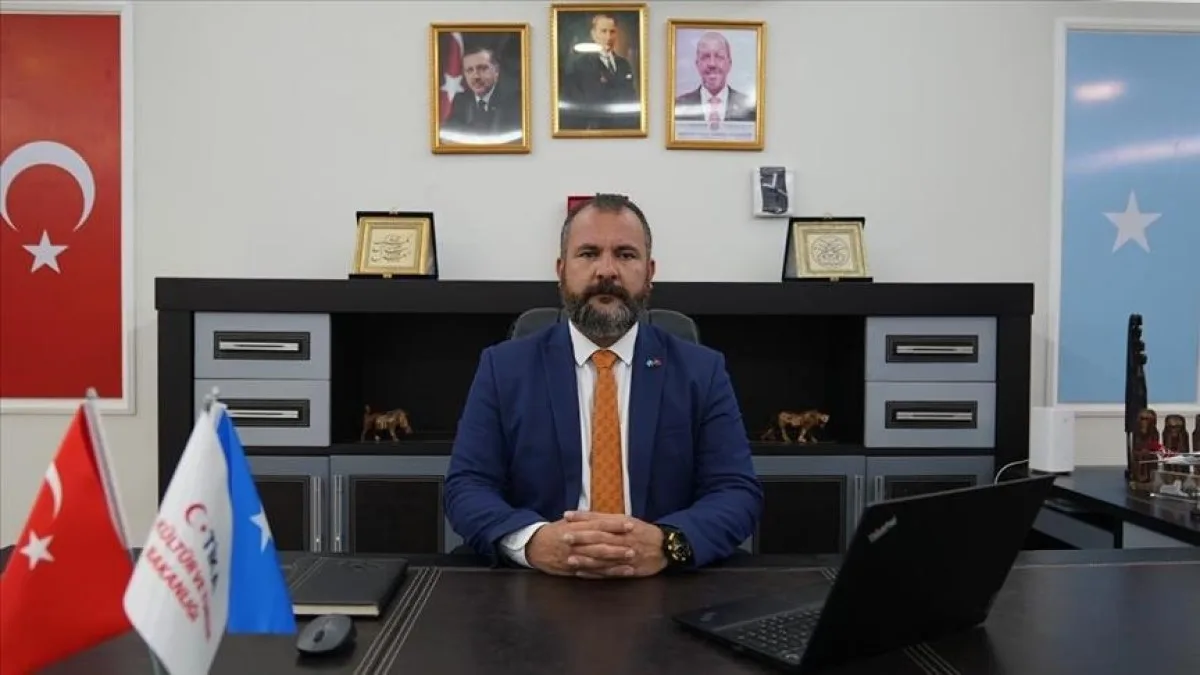By Huda Ata
Copyright gulfnews
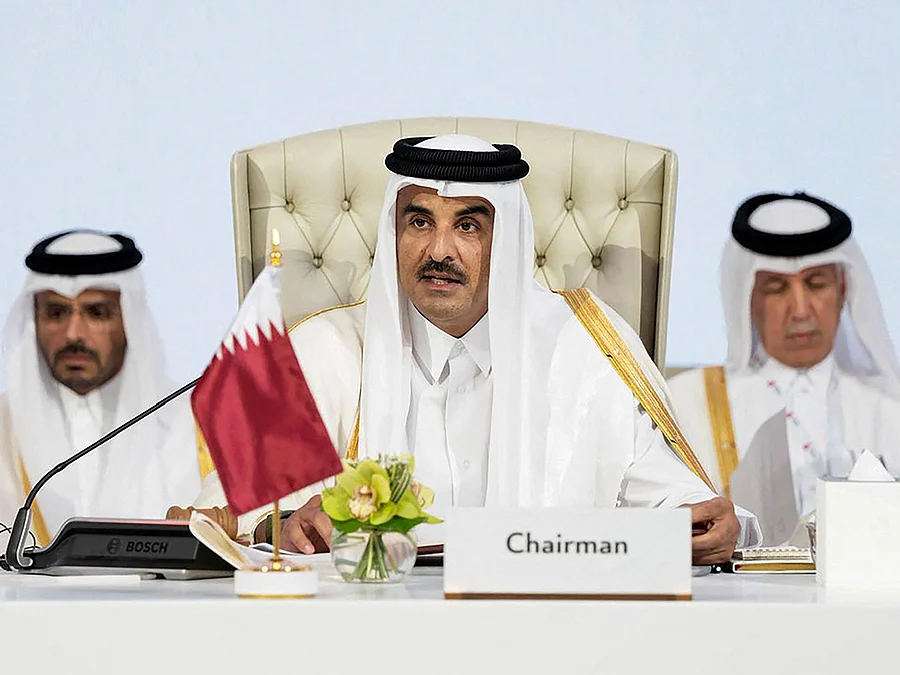
Dubai: Arab and Islamic leaders convened in Doha today for an emergency summit following an unprecedented Israeli strike on the Qatari capital — a move they condemned as a blatant violation of sovereignty and international law.The summit ended with the adoption of a 25-point communiqué, which strongly denounced the attack, reaffirmed solidarity with Qatar, and called for tougher international accountability measures against Israel.Emergency responseChaired by Sheikh Tamim bin Hamad Al Thani, Amir of Qatar, the meeting brought together heads of state, foreign ministers, and senior officials from the League of Arab States and the Organisation of Islamic Cooperation (OIC).Officials stressed the summit was not only a response to a single act of aggression but also to what they described as a wider pattern of escalating Israeli violations against Arab and Islamic nations..Israel attack aimed to halt Gaza talks: Qatar Emir .The September 9 strikeThe attack, carried out on 9 September 2025, hit residential neighbourhoods in Doha. Among the targets, Qatari authorities said, were facilities allocated for hosting foreign delegations involved in mediation talks, along with schools, nurseries, and diplomatic premises.The strike caused civilian deaths and injuries, including one Qatari national. It drew condemnation at the United Nations Security Council, which described it as a breach of international peace and security.Attack on diplomacyAt the summit, leaders framed the assault as more than a military strike. “This was not simply an airstrike on a city,” one Arab diplomat told reporters privately. “It was an attack on the very principle of negotiation.”The communiqué, described as detailed, legalistic, and politically forceful, set out 25 provisions. The opening clauses branded Israel’s actions as violations of international law and reaffirmed Arab and Islamic solidarity with Qatar..Qatar to world: Stop using double standards.Point 1 declared that Israel’s aggression against Qatar, coupled with its broader practices, including “crimes of genocide, ethnic cleansing, starvation, siege, and settlement expansion”, undermined the region’s prospects for peace and coexistence.Point 2 condemned, in the strongest possible terms, the Sept. 9 strike on Doha’s residential neighborhood, calling it cowardly and unlawful. The leaders emphasized that the attack endangered civilians, targeted schools and nurseries, and even struck diplomatic missions. They argued that the incident represented a “grave escalation” and exposed what they called the “extremism of the current Israeli government.”Point 3 reaffirmed absolute solidarity with Qatar, stressing that the attack constituted aggression not only against one state but against all Arab and Islamic nations. Leaders pledged to support Qatar in “all measures it may take” in defense of its sovereignty and security, in accordance with the UN Charter.Point 4 underscored the special significance of the attack, noting that Qatar has long served as a principal mediator in ceasefire efforts in Gaza and in hostage negotiations. Striking a neutral venue for mediation, they said, was not only a violation of sovereignty but also an assault on international diplomacy.Point 5 commended Qatar for what the communiqué described as its “civilized, wise, and responsible” response. Leaders highlighted Doha’s insistence on adhering to international law even while defending its sovereignty, portraying it as a model of restraint and legality in the face of provocation.The communiqué also sought to bolster Qatar’s mediation role while rejecting Israeli narratives.Point 6 expressed support for mediation efforts by Qatar, Egypt, and the United States, which have worked together to negotiate ceasefires and humanitarian arrangements in Gaza. The statement praised Qatar’s broader contributions, including humanitarian aid and education initiatives in developing nations, describing them as evidence of its “active role in peace and development.”Point 7 categorically rejected any attempt to justify the strike under any pretext, calling it a “blatant violation” of international law. Leaders stressed that the attack directly targeted ongoing mediation efforts, undermining chances for a political settlement to the Gaza crisis.Point 8 rejected repeated Israeli threats of further attacks on Qatar or other Arab and Islamic states. Such threats, they said, constituted dangerous escalation that required urgent international condemnation and deterrence.Point 9 welcomed a recent Arab League resolution titled “Shared Vision for Security and Cooperation in the Region.”Leaders used this point to highlight the principle of collective security, emphasizing unity in the face of external threats and calling for mechanisms to implement shared defense arrangements.Point 10 warned of Israel’s schemes to impose new faits accomplis in the region, including settlement expansion and territorial annexation, and reaffirmed the necessity of resisting such moves to safeguard regional stability.Much of the communiqué turned toward the Palestinian issue, tying the Qatari episode to what leaders said was a broader pattern of Israeli aggression.Point 11 condemned Israeli attempts to forcibly displace Palestinians from their lands, calling such acts crimes against humanity and policies of ethnic cleansing. The communiqué linked this point to urgent reconstruction needs in Gaza, urging donors to commit resources and announcing support for an international reconstruction conference in Cairo.Point 12 addressed Israel’s siege tactics in Gaza, condemning the use of starvation and deprivation of medicine as weapons of war. Leaders called these practices “war crimes” under international humanitarian law and demanded urgent international action to ensure safe, unimpeded delivery of aid.Point 13 warned against any Israeli decision to annex parts of the occupied Palestinian territories. Leaders said such actions would constitute “a nullification of all peace efforts” and a violation of both the UN Charter and relevant resolutions.Point 14 called for urgent international measures to stop Israeli aggression not only against Gaza and Qatar but also against Lebanon, Syria, and Iran. The communiqué framed these as part of a single continuum of violations threatening international peace.Point 15 went further, urging all states to impose sanctions, suspend arms sales, reconsider diplomatic ties, and pursue legal action against Israel. It was one of the strongest calls for punitive measures seen in a pan-Arab-Islamic declaration in recent years.Several points focused on the role of international organizations and courts.Point 16 called on OIC member states to examine whether Israel’s UN membership was still valid, given its consistent violations of the Charter. The idea of suspending Israel’s membership was floated as a potential pressure tactic.Point 17 emphasized adherence to international legitimacy and UN resolutions, warning against Israeli rhetoric that exploits Islamophobia to justify actions outside international law.Point 18 welcomed the adoption of the UN General Assembly’s New York Declaration on a two-state solution. Leaders commended Saudi Arabia and France for their efforts in bringing about the resolution, which reaffirmed global support for an independent Palestinian state.Point 19 looked ahead to the upcoming Two-State Solution Conference in New York, co-chaired by Saudi Arabia and France, and urged broad international recognition of Palestine with East Jerusalem as its capital.Point 20 praised the role of Algeria, Somalia, and Pakistan at the UN Security Council for defending Palestine and for helping convene the emergency session on the attack against Qatar.The communiqué also touched on Jerusalem and religious custodianship, reiterating long-held positions.Point 21 reaffirmed Jordan’s historic Hashemite custodianship over Islamic and Christian holy sites in Jerusalem. Leaders emphasized that Al-Aqsa Mosque in its entirety is exclusively a Muslim place of worship, with administration vested solely in the Jordanian Ministry of Awqaf.Point 22 underscored the importance of enabling Palestinians to remain in Jerusalem and supporting the Al Quds Committee, chaired by Morocco’s King Mohammed VI, as well as its executive arm, Bayt Mal Al Quds Al Sharif.Point 23 reiterated that a just and lasting peace cannot be achieved by bypassing the Palestinian cause. Instead, leaders called for renewed commitment to the Arab Peace Initiative and urged the Security Council to assume its responsibilities in ending Israeli occupation.Point 24 mandated OIC member states that are parties to the Rome Statute to support enforcement of International Criminal Court arrest warrants issued in 2024 against perpetrators of crimes against Palestinians. The communiqué also urged compliance with the International Court of Justice’s provisional measures on genocide.Point 25 closed on a note of gratitude, expressing “deep appreciation to the State of Qatar, its Amir, Government, and people” for hosting and organizing the summit. Leaders said Qatar had shown “wisdom and strategic vision” in guiding the discussions and praised its role in fostering consensus.
